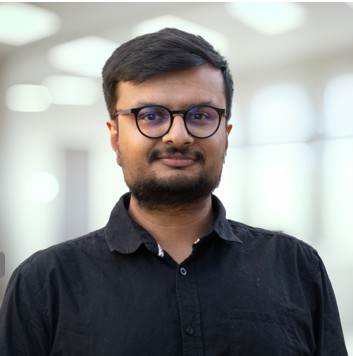
- This event has passed.
Revisiting quality control, normalisation, and spatially variable gene calling in CosMx WTx
March 31, 2025 @ 1:00 pm – 2:00 pm
Dr Dharmesh Bhuva, University of Queensland

Spatially resolved molecular measurements have revolutionised the study of disease systems, providing an unprecedented resolution and throughput of molecular measurements. The opportunity posed by such data requires a new set of tools to unlock its true potential. Initial uptake of this data saw the repurposing of computational tools developed for single-cell RNA-seq, however, new studies are showing the need for a different paradigm when analysing spatial measurements. While measurements across cells are relatively independent in single-cell RNA-seq, they are spatially autocorrelated in spatial RNA-seq. I will begin by demonstrating the presence of such autocorrelation and show that single-cell inspired normalisation strategies are detrimental to spatial datasets. Next, I will present some of our ideas on quality control of such data, focusing on the CosMx platform. I will then present our SpaNorm model for normalisation of spatial molecular measurements and demonstrate extensions of this model that allow SVG calling and a GLM-PCA approximation. While the ideas presented in this talk have been assessed in CosMx data, they should be applicable across other imaging-based spatial transcriptomics platforms.
Subscribe to our seminar mailing list
Find out more about the Statistical Bioinformatics seminar series

Dr Dharmesh Bhuva
Dr Dharmesh D Bhuva is an early-career computational systems biologist who is passionate about understanding how complex systems of gene regulation and signalling lead to diverse molecular phenotypes in healthy and diseased tissues. He completed his PhD in 2020 at the University of Melbourne and WEHI where he developed new systems biology approaches to study molecular function and gene regulation in cancer. He then undertook his post-doctoral studies at the world-renowned WEHI Bioinformatics division, where he embarked on developing novel approaches to study cancer tissues using spatial molecular data. In 2023, he joined the computational systems oncology division at the South Australian Immunogenomics Cancer Institute (SAiGENCI) to continue his cutting-edge research in developing computational approaches to study tissue architecture. Dr. Bhuva has recently been awarded a MRFF grant and a NHMRC investigator grant (EL1) to identify spatial biomarkers in cancer systems, work which he will undertake at the Frazer Institute.
